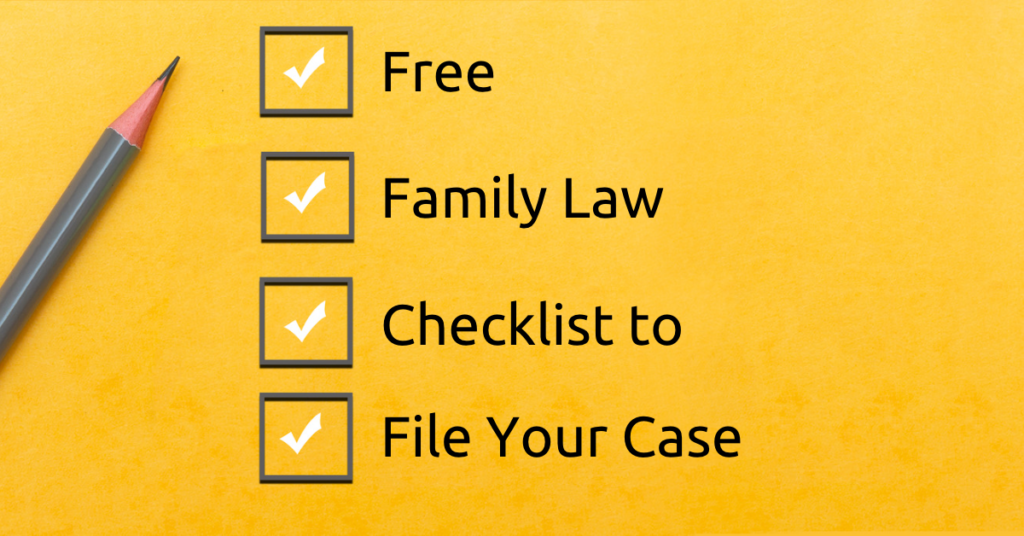I hope you enjoy reading this blog post.
If you want to represent yourself in family law, probate or estate planning court in Arkansas, check out one of our dedicated guides.

Navigating the realm of contempt is a challenging task, and if not done with care, it can lead to jail time or fines. Contempt of court encompasses various types and has harsh consequences for those who incur it due to outbursts before a judge. Hence understanding its different kinds, effects, and prevention techniques is pivotal in legal proceedings. In this post you will gain insight into what constitutes contempt towards a judge as well as methods on how to avoid it from disrupting your courtroom activities.
Short Summary
Contempt of Court is a serious offense with potential fines, jail time or other punishments.
Understand court orders and seek legal advice to avoid contempt charges. Respect the court’s authority by following its rules and being honest & courteous.
Challenging accusations can be done through appealing to higher courts & asserting defenses, while purging contempt involves complying with the order given for it to be removed from your record.
Info in this Blog
Understanding Contempt of Court
Courts must be respected for their justice and authority, so contempt of court is any action which undermines or disregards this. This can come in two forms: civil or criminal. Direct or indirect. It’s important to recognize the differences between these types when avoiding them altogether, but also knowing how to handle a charge if faced with one. Courts need both respect and dignity maintained at all times on its grounds as well as outside it, which may bring potential consequences depending on the severity of disregard shown towards its standards and protocols.
Criminal Contempt
Criminal contempt is an offense against the authority of a court, such as disrupting proceedings and intimidating witnesses. Both direct and indirect forms may incur punishment in criminal or civil proceedings, including fines, imprisonment or both. Direct contempt takes place within the presence of the court while indirect happens outside. These charges must be proven beyond reasonable doubt for justice to take its course with access to counsel being one’s right when applicable like those provided during any other type of criminal process that includes jury trial options depending on circumstances.
Civil Contempt
In family law cases, it is important to understand the difference between civil and criminal contempt. Civil contempt occurs when someone fails to comply with a court order – its goal being less about punishing the individual than coercing them into following said order. An example of this could be a parent ordered by courts who refuses visitation after finishing drug treatment, as stated in their ruling. Sanctions for civil disobedience can include fines, incarceration or any form of penalty that forces adherence. Avoiding penalties comes down strictly following court orders set forth and seeking legal advice if needed. Criminal contempt on the other hand acts more punitively towards an offender rather than pressuring compliance with given mandates from appropriate authority figures i.e., judge/jury etc. Fully comprehending these two forms is essential knowledge concerning matters brought up within formal judicial system context.
How to Tell if It is Civil or Criminal Contempt
The easiest way to tell is, “who holds the keys to the jail?” For instance, if a judge gives someone 10 days in jail, then the judge holds the keys. You can only get out once the 10 days is up or the judge lets you out.
If the judge says you have to stay in jail until you pay child support, then you hold the keys to the jail. Whenever you pay you get out, you could pay after being in jail for one minute and you would be released.
How to Get Someone Held In Contempt of Court

If an individual is accused of contempt in court, it’s necessary to undertake the right legal procedures. This consists of presenting proof that a violation occurred and notifying the person being charged appropriately. The entire process can be complex, so enlisting a lawyer may be beneficial for ensuring everything has been done properly. It’s important to understand both the legalities and possible repercussions should they be found guilty of such contemptuous behavior in court.
What is the process of holding someone in Contempt of Court
A court order must be obtained and presented as the basis of a motion for contempt. This would need to include evidence indicating that an alleged violation had taken place within the allotted timeframe set by jurisdiction laws. Once submitted, it will be reviewed in depth by the court to decide if proof is provided enough for holding them accountable with contempt charges or not. If satisfied, they can issue rules on cause which require attendance at a hearing where judgement shall be made regarding whether any breach was committed or not. Possible sanctions such as fines imposed, jail sentences given or other solutions exercised accordingly by a judge’s decree.
Consequences of Contempt of Court
Those who fail to adhere to court orders may face serious penalties for contempt of court. Depending on the type underlying case and severity of infraction, punishments can range from a fine all the way up to imprisonment or other sanctions. It is important that individuals are aware of these potential consequences so as not to be in breach of any judicial rulings unknowingly and suffer their associated repercussions.
Fines and Imprisonment
The penalties for disobeying court orders can vary based on jurisdiction, with fines or jail time possible. In the US specifically, criminal contempt of court carries a maximum fine of $1,000 and/or up to six months in prison per violation determined during criminal contempt proceedings. Other countries may have different punishments regarding this issue as well. Hence it’s important to know what is expected by one’s own legal system when faced with disregarding Court instructions.
Civil Contempt Sanctions
Penalties for not adhering to a court order constitute civil contempt proceedings and can consist of fines or incarceration until the individual follows said order. These sanctions are distinct from criminal contempt punishments, which serve as deterrents against such actions in the future.
The effects of these civil penalties depend on their nature and how serious the breach was. It is important to obey judicial rulings otherwise there could be harsh consequences resulting in legal issues with authorities concerning disrespecting court orders.
Impact on Legal Proceedings
The court’s authority must be respected to ensure a fair and equitable judicial process, which is why contempt of court can have serious consequences for those who fail to abide by it. This could include fines, community service or even jail time if someone refuses to testify in criminal proceedings and the judge orders them into contempt. Not only does this potentially affect an individual involved, but also disrupts the orderly administration of justice as a whole. Failing to comply with the court’s instructions has far-reaching implications that are not limited solely to those facing charges related thereto.

Free Checklist to Make Sure you Start Your Case Correctly!
How to Avoid Contempt of Court
Anyone facing a court order should familiarize themselves with the details in order to avoid potential violations, which can incur consequences such as fines or jail time. It is critical that all parties affected by these orders fully understand them and read through any terms thoroughly before following an imposed mandate from a judge. If there are any ambiguities regarding what must be done, it’s wise to seek counsel from a qualified attorney who can explain precisely how best to comply.
Seeking Legal Advice
An attorney can be beneficial in providing the necessary guidance to help you stay on track when it comes to complying with court orders and avoiding charges of contempt. Legal professionals are a valuable asset for navigating complex legal processes, making sure that all instructions set forth by the court have been followed, as well as preventing costly errors along the way.
If ever unsure about any kind of ruling or order from a court, seeking counsel from an experienced lawyer is key to ensure everything has been done correctly—thus protecting one’s rights while obeying proper judicial protocols.
Respecting Court Authority
Individuals may protect themselves from contempt charges and the potential punishments such as jail time, by demonstrating respect for the court’s authority. This includes abiding to its rules like arriving on time for hearings or dressing accordingly, but also being honest when providing information in it. Any disrespectful behavior within a courtroom can lead to different levels of contempt penalties. To avoid these risks, showing proper deference towards the court is essential while following all their instructions diligently should be observed too.
Conclusion
Understanding contempt and court orders is vital to staying away from criminal charges for disrespecting the authority of a court. This can involve civil and criminal varieties such as whether direct contempt occurs or indirect contempt, which may result in various punishments should they be invoked against an individual. Seeking legal advice when necessary, and complying with judicial directions. These are essential ways by which one preserves fair procedures observed by all parties involved through obeying courts’ decisions.
Frequently Asked Questions
What is the punishment for contempt of court in US?
The US legal system sets a fine of up to $1,000 and/or an incarceration period not exceeding six months as the penalty for contemptuous behavior in a court proceeding.
What does it mean to be held in contempt?
When a person or group has disregarded the rules and power of a court, they are deemed to have broken legal requirements and may be found in contempt. This includes any disruption occurring during judicial proceedings as well as obstructing justice being carried out properly by the court. To be held in contempt suggests that their behavior was disrespectful towards the authorities laid down for them to obey.
What is criminal contempt Arkansas?
Criminal contempt in Arkansas is employed by courts to uphold their authority and maintain order, punishing those who disregard court orders. Being found guilty of the criminal offense of contempt can result in the imposition of fines or incarceration, serving as a measure for upholding respect for such court commands. The magnitude with which courts take this kind of lawbreaking reflects how seriously they regard both preserving judicial power and enforcing due obedience to its directives.
What are the two main types of contempt of court?
Contempt of court, both civil and criminal, is an offense in which someone violates the authority or dignity of a judicial body. It can take on many different forms.
How can I avoid being held in contempt of court?
In order to ensure that one is not held in contempt of court, it is necessary to comprehend and observe all relevant orders issued by the court. Seeking professional legal advice when needed will help prevent any potential difficulties from arising from lawful court order. Showing respect for the authority of the court at all times should be paramount in ensuring a healthy relationship with its members.
Do you want to represent yourself in court?

About Brandon
A licensed attorney with over 10 years of experience – I’ve noticed a lack of support for people who want to represent themselves in court.
So, I’ve created video guides that will help you gain back control of some of the least predictable situations you could experience in your lifetime.
Contempt Guides
Do you want to represent yourself in court?
Modification Guides
- Intro to Family Law
- Requirements to Modify Custody and Support
- Drafting the Motion to Modify
- Court Required Forms
- How, Where, and What to File
- How to Serve or Get a Waiver
- Drafting a Waiver
- Modification Filed Against You
- Child Support Calculation
- Order to Modify
- Procedure in the Courtroom
- What to do with the Decree